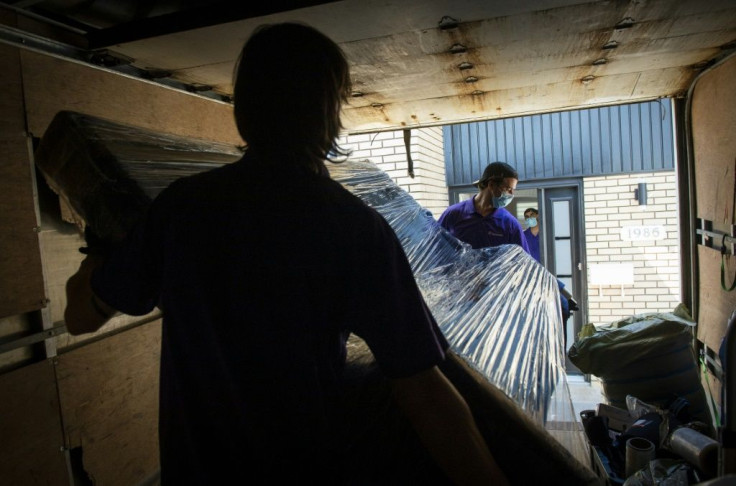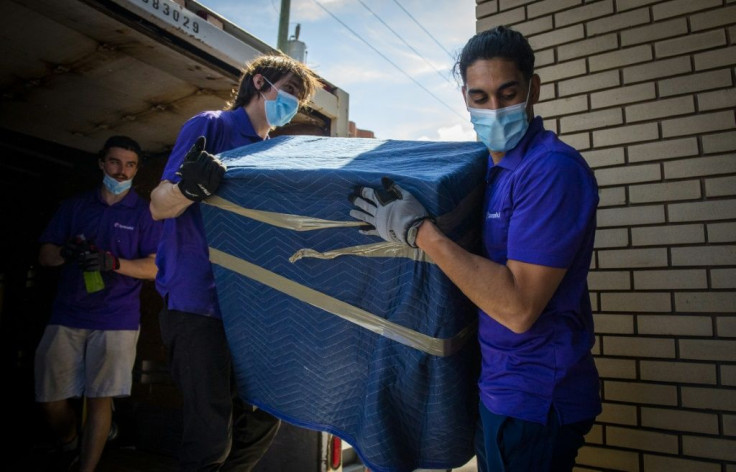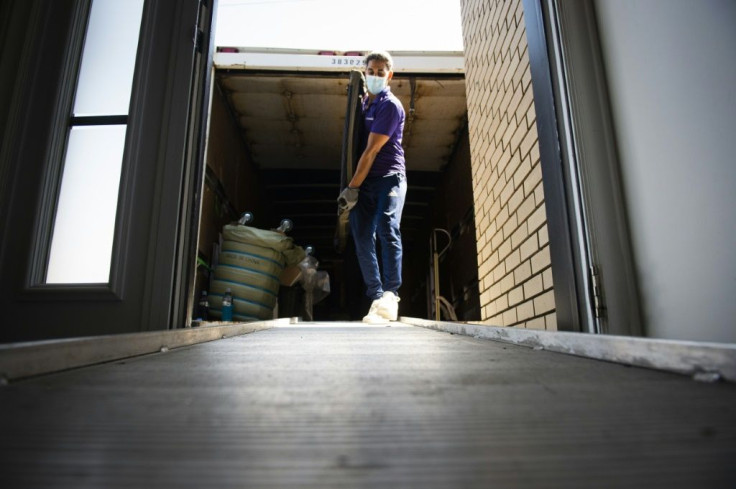Coronavirus Complicates Quebec Moving Season

Moving house is a palaver at the best of times, but in the Canadian province of Quebec it is even more testing as the majority of leases end on the same day.
Hundreds of thousands of people in the French-speaking region move on July 1, and in Montreal alone 80,000 to 100,000 households change their address around this time of year, according to official city figures.
The tradition reportedly dates from the 18th century, when landlords were forbidden from evicting tenant farmers until all snow had cleared.
This year moving season has been further complicated by the coronavirus epidemic sweeping Canada.
"I was worried," said Sheila Dassin, a 46-year-old fashion designer, directing masked workers from a distance as they strained under the weight of her furniture.
"People are going to touch your things. With the crisis outside, we are afraid of people, that strangers will bring it inside our house."
Quebec has reported more than half of Canada's approximately 104,000 confirmed coronavirus cases and nearly two-thirds of its 8,600 deaths.
The lease-date quirk -- most end on June 30 -- coincides with Canada Day, a national holiday on July 1, which gives Quebec residents some spare time to complete their moves.

But given the fraught situation this year, more people than usual feared they would be made homeless by a housing shortage compounded by the ongoing health crisis.
"The number of calls for help exploded," said Veronique Laflamme, spokeswoman for housing rights group FRAPRU.
She said 171 households had found themselves without a lease this year in Montreal, compared with 98 in 2019.
To help stop the spread of COVID-19, authorities recommended that people not ask friends and neighbors for help with their move, but instead use a moving company, because they are able to take health precautions.

"It's an additional expense, which piles on for households already struggling to make ends meet," Laflamme said.
Moving furniture makes it "completely impossible to keep a distance of two meters" (six feet), said Pierre-Olivier Cyr, whose company, The Moving Clan, has implemented a number of new safety measures.
Among them is a rule allowing only one customer in the home at a time to minimize contact with the moving team.
Since March the company, which owns around 60 trucks, has been disinfecting its fleet every night and has purchased around 10,000 reusable masks.
Implementing new safety measures cost the firm an estimated CAN$100,000 (US$73,600), which it so far has not passed on to customers.
"People have lost their jobs, the means are not there," Cyr said, adding that he doesn't rule out an increase "if the pandemic were to stretch on."
Maxime Villemure, CEO of Spaceful, a Montreal moving start-up, said that "customers are still quite stressed. They ask us questions about the hygiene measures we're taking. We sense anxiousness."
Employees must keep a two-meter distance and wear gloves and a mask, even on the first day of July, with temperatures pushing 30 degrees Celsius (86 degrees Fahrenheit).
Dassin said her movers "were careful, they put on masks, they were very professional."
"I won't be afraid to touch my things tonight," she said.
© Copyright AFP {{Year}}. All rights reserved.





















